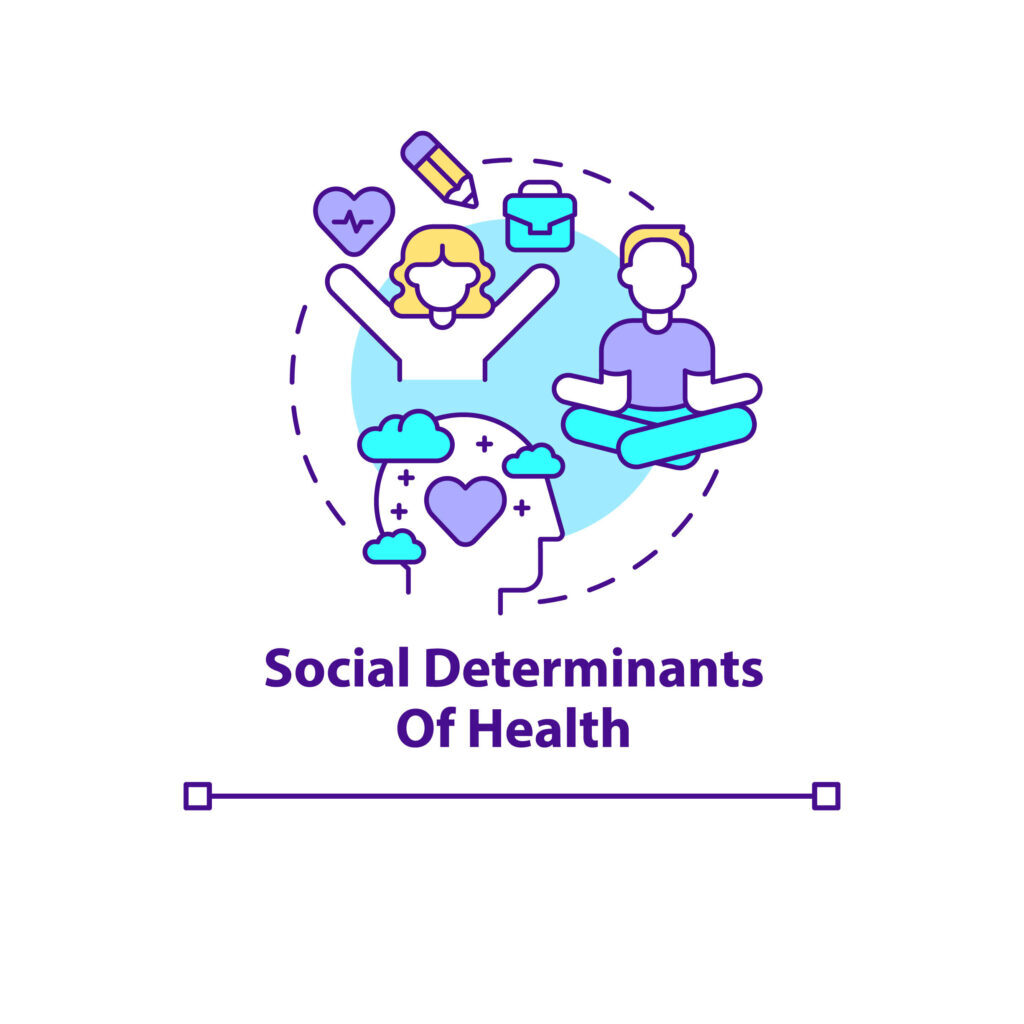Preventative medical care, personalized for each patient, can help reduce healthcare costs for providers and reduce readmission rates in hospitals or long-term care facilities. However, one simple key element may throw a monkey wrench even in the best patient care communication network – overlooking the impact of social determinants on patient health. Can hospitals help reduce the impact of these effects?
What are Social Determinants of Health?
According to the New England Journal of Medicine, individual behaviors are the largest contributor to poor health, roughly 40%. However, some individuals have limited choices for healthy behaviors. These social determinants of health, first postulated in the 1960s during the War on Poverty reduce an individual’s capacity to make healthy choices. These include:
- Housing instability, being unable to pay rent, afford one’s own place, or living in run-down or overcrowded housing
- Food insecurity, not having reliable access to affordable healthy food, or living in a “food desert” community
- Transportation, without an affordable or reliable way to get to a place to purchase healthy food or receive medical care
- Education, lack of access to high school or GED courses, or vocational training
- Utility needs, being unable to consistently pay utility bills
- Violent environment; being exposed to violence or physical force can result in injury or death
- Lack of familial or social support to provide interaction or a nurturing environment
- Unreliable employment and inconsistent income, being unable to obtain or keep a job
Many of the problems in this country, such as violence and abuse, correlate with lower availability of nutritious food, stable housing, and reliable transportation. The result is worse health for those affected and a greater chance of them developing chronic health conditions.
The Role of Medical Providers and Payers When Social Determinants of Health are Present
Although the studies conducted as part of the War on Poverty noted the effects of social determinants on health, it wasn’t until about 20 years later that hospitals and medical care providers addressed them by hiring social workers to connect patients with community support resources to help with some of these needs.
The problem with using hospital resources for social care services is that medical care providers are in a cyclical fee-for-service model. To put it more simply, helping patients receive social services doesn’t generate fees and therefore isn’t usually part of a recommended course of treatment. However, these social services can help contribute to better living conditions and increase access to healthier options, from food to regular doctor check-ups.
How Porter Can Help
So, how can hospitals and patient management software programs reduce the effects of social determinants of health? The complete patient profile can give caregivers a fuller picture of each patient’s needs. It may shine a light on environmental factors that are contributing to chronic conditions, such as asthma and diabetes. Porter offers patients a wealth of online resources about managing their condition, including what kind of lifestyle factors may exacerbate symptoms or speed the disease’s progression. It also offers ways for patients to manage their healthcare by making lifestyle changes with easy-to-access educational tools.
Furthermore, Porter makes it easier for patients to learn about aspects of their insurance coverage. For example, some plans may offer rides to doctor’s appointments, which patients may not be aware of.
Suppose you’re a healthcare provider or payer concerned with readmission rates for patients with chronic conditions. In that case, the benefits of Porter may be able to help you identify some social determinants of health that are affecting their condition. Contact us today to learn more.



